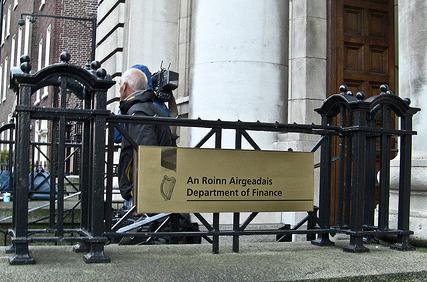Budget developed with a microscope when a telescope was required

Budget 2012 “was developed with a microscope when a telescope was required” according to human rights and justice group Social Justice Ireland. The group has criticised the Government’s failure to focus on longer term and wider issues such as declining domestic demand, persistent long-term unemployment, public debt sustainability and growing poverty and inequality.
They describe the Budget as “unjust and unfair” and say that, “Even within its own parameters Government had choices that would have produced much fairer outcomes. It chose instead to protect the better off more than the vulnerable.”
Read extracts from their detailed critique of Budget 2012 below. The full paper is embedded at the bottom of this article.
Running down the economy
Budget 2012 marks the seventh fiscal adjustment to the Irish economy since the beginning of the current economic crisis in 2008.
While exports will grow domestic demand will fall even further in 2012 according to the Budget's own forecasts, with household spending projected to fall by 1.3%, Government spending down by 2.2% and investment down by 1%.
Social Justice Ireland believes that Government needs to adopt policies to stimulate the economy rather than continually run it down. They should also focus on reducing the numbers long-term unemployed substantially as proposed in our Part-Time Job Opportunities Programme proposal.
Such policies are essential if there is to be any hope of addressing Ireland's record level of unemployment.
Unemployment not addressed
Unemployment is forecast to average 14% in 2012. More than 180,000 people have been unemployed for more than a year. Nothing in Budget 2012 will have any impact of scale on increasing employment or reducing unemployment.
Universal Social Charge
Budget 2012 adjusted the Universal Social Charge as we had proposed in our Policy Briefing on Budget Choices. However inflation, projected to be 1.8% in 2012, will erode most of the gain this change brings.
VAT increases hit poorest hardest
The increase of 2% in the top rate of VAT will have a disproportionate effect on the living standards of households with low incomes. As we show on page 3 of our paper the poorest 10% of Ireland's population paid 14.9% of their income on VAT.
More than three quarters of that was paid through the 21% rate so in effect the increase in Budget 2012 will reduce their disposable income further.
By contrast the richest 10% of the population paid less than 7% of their total income on VAT. VAT is a regressive tax. It is also bad for the economy.
Context
The dramatic increase in inequality reported in the latest SILC study (cf. p.10) highlights a key aspect of the context of Budget 2012. It shows that Ireland is a deeply divided two-tier society and the trend is moving towards greater division. This conclusion is confirmed by the rise in poverty even though the poverty line fell by more than 10%. Now there are more than 700,000 people (15.8%) at risk of poverty of which 220,000 are children (19.5%) – the number of children at risk of poverty has risen by more than 37,000 in three years.
These figures reveal the extent of growing social exclusion. Without focused decisive action these trends will continue and will lead to serious destabilisation in Irish society. Budget 2012 has failed to address these key challenges in any meaningful manner.
Need for a debate on national strategy
A substantial national debate is required on how Ireland and its people are to move forward in these very challenging times. We need to look again at our analysis of the present situation, our vision of the future and how we propose to move from one towards the other. A more strategic approach is required. Otherwise the economy will remain in the doldrums, mass unemployment will continue, the debt will not be repaid and Ireland will not recover.
Alternatives
Alternatives do exist. Government does have choices. Within the parameters of the EU/IMF/ECB Agreement, for example, Government could have taken €2 in tax increases for every €1 it cut in public services as we set out in our Budget Choices Briefing. This would have produced a fairer Budget. An alternative is required to ensure economic recovery, a just society and a sustainable future.
Conclusions
As a result of Budget 2012:
- The deepening inequality and social exclusion Ireland is experiencing is set to continue.
- The economy will remain in the doldrums, mass unemployment will persist and social services will continue to be eroded.
- The better off will continue to dodge their responsibilities and thrive while the gap between them and Ireland's poorest will continue to widen dramatically.
- Many transnational corporations will continue to pay no tax whatsoever on their substantial profits while small and medium enterprises will see no real improvement in their very limited access to credit.
This is bad for the economy, bad for society, and bad for the future. {jathumbnailoff}
Social Justice Ireland Budget 2012 Analysis and Critique
Image top: infomatique.
